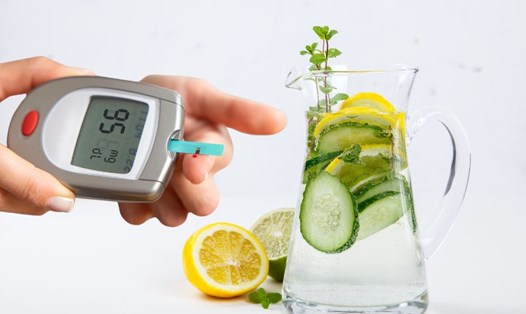Dr. Gupta, an internal medicine specialist at Indraprastha Apollo Hospital, New Delhi (India), said that drinking enough water can help regulate body temperature and blood pressure, lubricate joints, keep your spine healthy and remove waste and toxins from the body.
We are often advised to drink about 3 liters of water per day. However, it is important to spread this amount evenly throughout the day for your body to function optimally. Drinking water according to your needs and not scientifically can make you feel tired and rehydrate your body ineffectively.
Recommended daily water intake
Men: About 3.7 liters per day.
Women: About 2.7 liters per day.
Dr. Gupta notes that the above dosage includes all types of fluids consumed, not just water.
What factors affect water consumption?
Activity level: Increased physical activity increases water needs.
Climate: Hot or humid weather can increase sweating.
Health conditions: Conditions such as fever or diarrhea require extra fluids.
How to maximize the benefits of water consumption
To maximize the benefits of water consumption, Dr. Gupta offers strategies for distributing water intake throughout the day.
Drink water in the morning: Start your day with a glass of water when you wake up. This helps rehydrate your body after hours of sleep and flush out toxins.
Regular Intervals: Try to drink water at regular intervals instead of drinking large amounts at once. A good habit is to drink a glass of water every hour.
Use reminders: Set notifications on the app to remind you to drink water throughout the day.
Consume before meals: Drink a glass of water about 30 minutes before meals. This not only aids digestion but can also help control hunger, prevent you from overeating and help with weight control.
During meals: Drinking water during meals can aid digestion, but avoid drinking too much as it can dilute digestive enzymes. Drink water an hour after meals to help your body absorb nutrients.
Before bathing: Drink a glass of water before bathing to help lower blood pressure.
Rehydrate after exercise: After physical activity, replenish lost fluids by drinking water or an electrolyte-rich beverage.
Evening routine: Limit your water intake in the evening to avoid disrupting your sleep due to nighttime bathroom trips, but make sure to stay hydrated throughout the day.
Before bed: Drink a glass of water an hour before bed to replenish fluids lost during the night.
How do I know if I am dehydrated?
It’s important to monitor your hydration status, says Dr. Gupta. Common signs of dehydration include thirst, dark yellow urine, fatigue, dizziness, and dry mouth. If you experience these symptoms, increase your fluid intake immediately.










